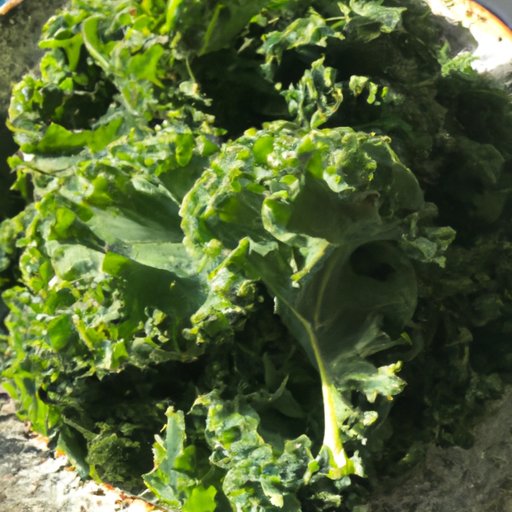
Introduction
Kale has become one of the most popular superfoods in the world, known for its impressive nutritional profile. This leafy green is packed with vitamins and minerals, and it’s an excellent source of fiber, which can be beneficial for digestive health. Despite its numerous health benefits, many people are hesitant to consume kale because they have heard it can cause digestive upset. In this article, we will explore whether this is true and look at ways to incorporate kale into your diet.
The science behind the claim: Does Kale really make you poop?
One of the most common claims about kale is that it can make you poop more frequently or cause digestive discomfort. While there is some evidence to support this claim, it’s important to note that the majority of studies have not found a significant impact. In fact, most experts believe that kale can be highly beneficial for digestive health.
It’s important to understand how kale affects digestion and bowel movement. Kale is a rich source of fiber, which is essential for healthy digestion. Fiber helps to move food through the digestive tract, promoting regular bowel movements. However, too much fiber can also be problematic, causing digestive upset.
There are different mechanisms and compounds in kale that may be responsible for its impact on poop. One of the most important is its high content of insoluble fiber, which adds bulk to stool and helps move it through the intestines. Additionally, kale contains compounds like glucosinolates, which have been shown to have anti-inflammatory and antioxidant effects.
Healthy foods that help improve digestion: Kale included
When it comes to understanding the digestive benefits of kale, it’s important to consider the bigger picture of gut health. A balanced diet that includes a variety of nutrient-dense foods can help to promote a healthy gut microbiome and regular digestion.
Polyphenol-rich foods, including kale, have been shown to promote gut health and regularity. These foods contain compounds that support the growth of healthy gut bacteria, helping to promote optimal digestion. Other foods that support gut function include probiotics like yogurt, high-fiber fruits and vegetables, and fermented foods like sauerkraut and kimchi.
Why some people may experience digestive issues with kale
While kale is beneficial for many people, some individuals may experience digestive discomfort when consuming it. There are different reasons why this might occur.
One potential cause is kale’s high fiber content. For individuals who aren’t used to consuming a lot of fiber, even a small amount of kale can be problematic for digestions. Additionally, some people may have specific food intolerances that make it difficult for them to digest kale.
Another factor to consider is the oxalate content of kale. Oxalates are naturally occurring compounds found in some plant foods. In high amounts, they can contribute to the formation of kidney stones or interfere with nutrient absorption. Some people may be more sensitive to oxalates and need to limit their intake of high-oxalate foods like kale.
Tips to incorporate Kale into your diet without upsetting your stomach
For individuals who experience digestive discomfort after consuming kale, there are still ways to benefit from this superfood. One practical suggestion is to start with small portions and gradually increase the amount over time. Additionally, cooking kale can make it more tolerable for some individuals.
Finally, it’s important to note that there are numerous other fiber-rich foods that can be beneficial for gut health. By incorporating a variety of these foods into your diet, you can promote regular digestion and avoid potential digestive distress.
Kale vs. other fiber-rich foods: Which is best for digestion?
When it comes to promoting healthy digestion, there is no one-size-fits-all approach. Different individuals may find success with different foods. However, it’s clear that consuming a variety of fiber-rich foods, including kale, can be highly beneficial for digestive health.
Other high-fiber foods that can be included in a healthy diet include lentils, beans, and broccoli. These foods all contain different types of fiber and can provide unique digestive benefits. Lentils, for example, are a rich source of soluble fiber, which has been shown to help regulate cholesterol levels and promote healthy bowel movements.
Conclusion
In conclusion, incorporating foods like kale into your diet can be a highly beneficial way to support gut health and promote regular digestion. While some individuals may experience digestive discomfort after consuming kale, there are many ways to make it more tolerable. By gradually increasing the portion size and experimenting with different cooking methods, you can benefit from the nutritional value of kale without upsetting your stomach.





